

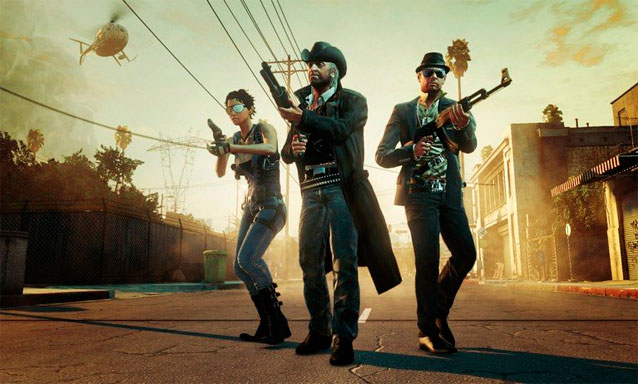
Gameranx: I imagine you've heard this one before, but I have to bring it up: Red Dead Redemption. It pretty much made the wild west cool again. Meanwhile, you've traded your saloons and tumbleweeds for modern cities and different tumbleweeds. In light of Red Dead's success, are you kicking yourself for that at all?
Samuel Jacques: We did plan it before RDR, and we don't regret it all. First of all, it's more about being a western than actually being in the old west, because we believe it's more a matter of attitude and feeling than time and place. We can only be happy that a great game like Red Dead Redemption made westerns more popular. We can only benefit from it. We're going in a different direction. We're FPS. We have three-player co-op. We have a great story. As for the modern setting, we really hope the fans will see that this is still very much a Call of Juarez game, and we hope that the modern setting may even attract some new audiences.
Between games like Red Dead Redemption and Call of Juarez – as well as films like True Grit – it seems like the western is making a bit of a comeback. So, why now? In particular, what about the western appeals to society today?
I believe that westerns never really went away. People didn't want to make western games for a while. This is what made us create the first Call of Juarez; we really missed this. We wanted a serious western game. Not alternate history. Not science fiction. Just a western with a good story.
I think that it really is universal. You know, real men standing up to bad guys. The characters being not really black or white, but real people. Even the most classical of movie western characters are never obviously good. They just try to do the right thing. That actually makes the characters believable and interesting. So I'm not surprised at all that people want to see more of it.
Do you think you'll ever revisit the old west?
Yes. We're never saying that we're switching to the modern setting forever. We'll be thinking about many new ideas for the series, and they may be just as surprising as this switch. But yes, we can go back to the old west for sure.
All right, then. Two words: “space western.”
Not telling right now, but that's actually quite a nice idea. And it's been done before, but not in games, so why not?
Many people's initial reaction to the new setting was “Oh great, another modern FPS?” Are you afraid that might turn off potential players? Or rather, confuse them into thinking your game is something it's not?
In a way, it gets a little more competitive, but we still feel pretty unique. First of all, an FPS with a really good story that makes sense is not so common. With our experience of creating the western mood and feel, we believe we can really pull it off again. The game is bigger, the project is bigger, but we still want the same spirit in the game. And when people see that this actually isn't a military shooter – it's not about killing everyone in sight, it's a police story about bringing down the drug cartel – it really gets interesting.
So now we are really proving it by making a western game in a modern setting. It's very much a wild west game. We have a lot of experience creating this sort of thing. So we're not only approaching it from the art direction perspective – camera angles, color, dialog, type of weapons the characters get – but we have also identified the key elements of what make a western. You know, the lawlessness, the feeling of freedom, the wide open spaces that we have, the gunslingers. We believe we can still find them in today's world, so this is what we're trying to make.
You've had to deal with some real-life controversy over your choice of setting, with Mexican state Chihuahua's legislature even calling for a complete ban of your game. What's your reaction to that? Are they even attempting to give you a fair shake?
We are just a little surprised, because obviously the people who are creating this controversy know nothing about the game. They're saying things about glorifying the cartel, yet we have a game where you're playing as cops and going against the cartel. Plus, it's a completely fictional story. We started making games with “Juarez” in the name back in 2006, so we're not jumping on some sort of controversy. This is a fictional action story and that's all we're doing. So that changes nothing.
In that respect, your game is hardly alone. At this point, the gaming industry doesn't really seem to know how to deal with outside controversy. Sometimes, we fall back on the old “oh, it's just a game” argument. Other times, we dole out incredibly passive-aggressive justice in the form of bad Amazon book reviews. So, in your opinion, whose duty is it to defend the gaming industry when issues like this arise?
In my opinion, it's all about treating games like all other media. I mean, if you look at it, really there's no gaming controversy that has crossed a line that movies or literature didn't cross a long time ago. Actually, in the case of our game, we never tried to recreate real life. We are creating a fictional entertainment product, and if people really want to find something in it, they should probably learn what the game is about. That's all we can say.
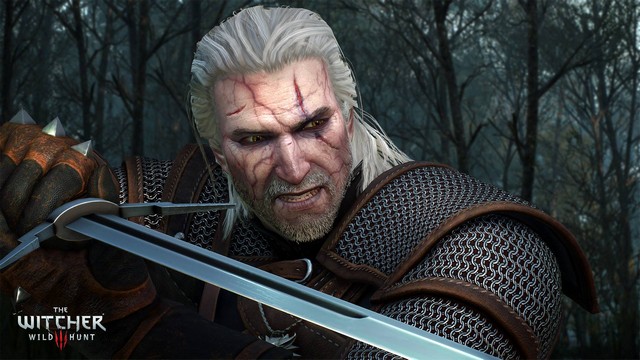
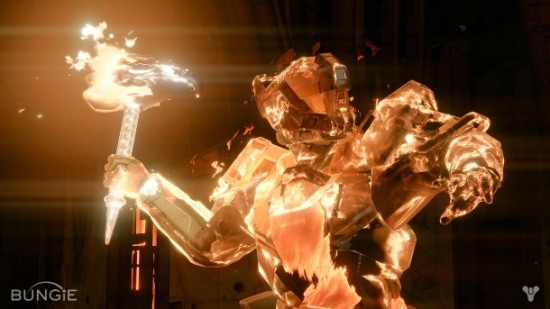
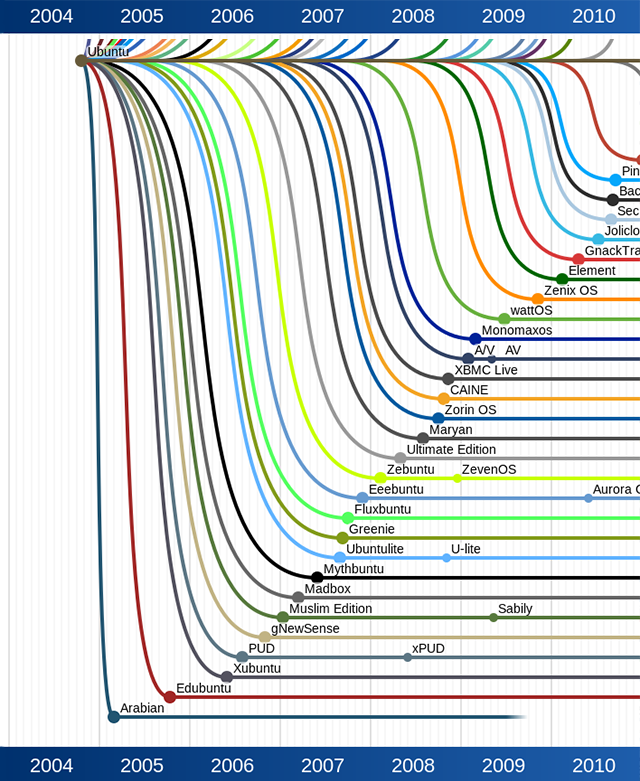

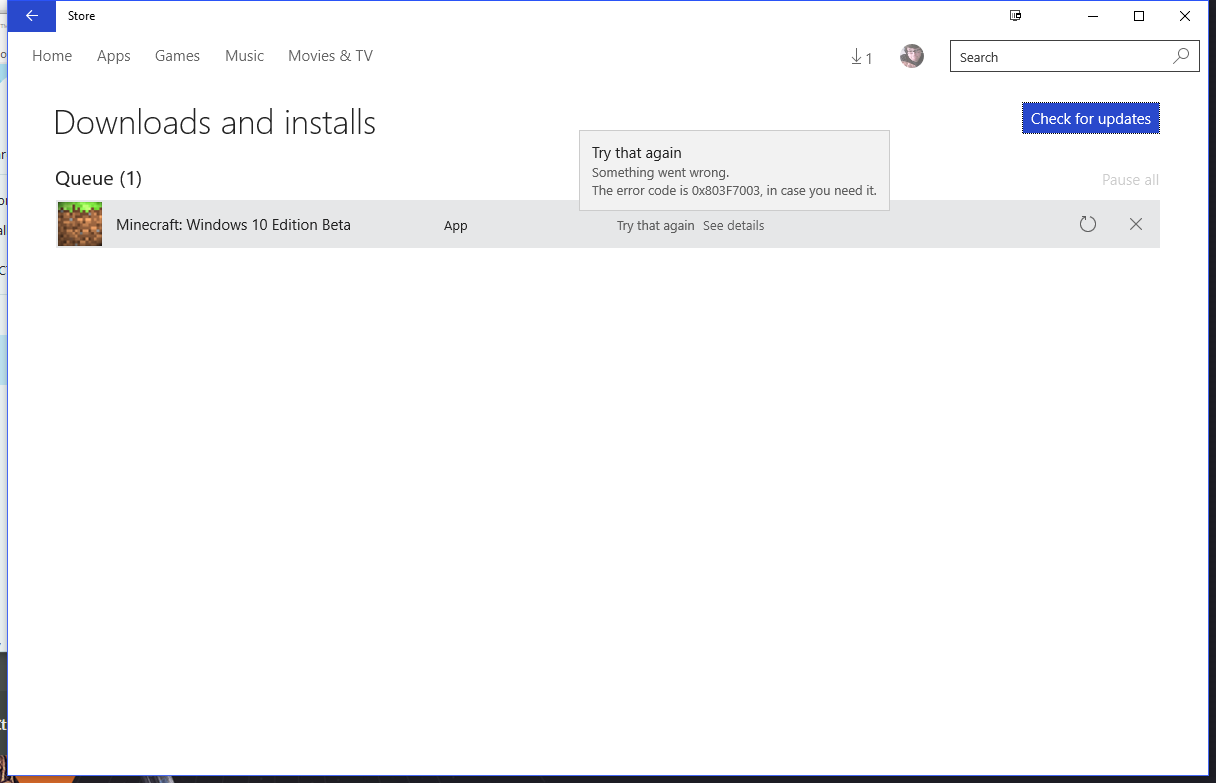 How to Fix the Windows Store Download Issue (Error message 0x803F7003)
How to Fix the Windows Store Download Issue (Error message 0x803F7003) Top 10 Gifts for Health Nuts & Fitness Freaks
Top 10 Gifts for Health Nuts & Fitness Freaks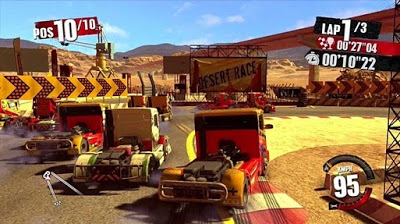 Best Truck Simulator games for PC and Smartphones
Best Truck Simulator games for PC and Smartphones Dark souls 2 Havels Armor Set Location
Dark souls 2 Havels Armor Set Location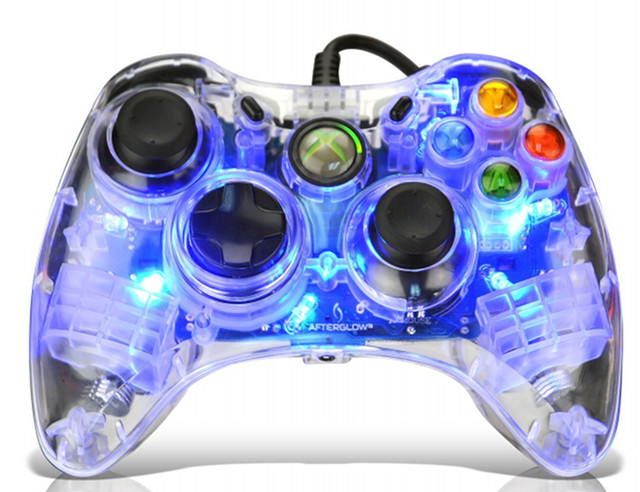 Should You Buy An Aftermarket Controller For Your Console?
Should You Buy An Aftermarket Controller For Your Console?